Table of Contents
Philosophy Of Karl Marx:
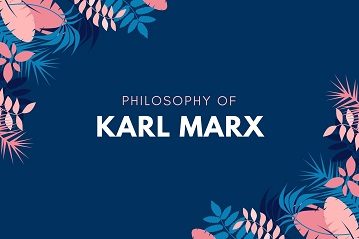
Dialectical Method Of Karl Marx:
In Marx’s dialectical method, three laws deserve mention-
Law of mutual inclusion of opposites:
According to this law, the existence of all objects is inclusive in each other. None exists separately. In the same way, even in different states of the same thing, the preceding states are assimilated in the succeeding states. Thus objects and their states are both inseparable from each other. In ethics, the result of this law is that the welfare of anyone person is not separated from other people. Social welfare and individual welfare have no distinctions. In the same way, all activities of man admit of reciprocal relations. According to Marxism, economic or wealth-producing activities predominate in us. Thus, economic activities and social welfare are intimately related.
Law of change in the quality of quantity or quantity of quality:
It is not only quantity from quantity and quality from quality but new qualities are also created from quantity. Consciousness is created out of matter although matter completely lacks consciousness. Man is not a mere conglomeration of hands, legs, etc. In him is consciousness, completely different in nature from the body. Like the Caravakas, Marx treats consciousness as new quality and not the result of a combination of parts of the body. Thus, his ethics is not only materialism. The evolution of both body and consciousness is necessary because the two are separate.
Law of negation of negation:
In the progress of dialectical evolution, every new step produces qualities differing from the preceding steps. Thus, these two are called thesis and antithesis. Their conflict is settled in another step called the synthesis. In the field of ethics, this law creates relativism. Moral laws are not unchangeable and eternal; their evolution, also, is in accordance with this dialectical justice. The following moral norms negate the preceding dialectical justice. The following moral norms negate the preceding moral thoughts and eliminate internal conflict. Thus Marxist ethics is the synthesis of ancient and medieval moral approaches.
Class Struggle and its evolution in Karl Marx:
Being a materialist, Karl Marx looks upon thought as based on facts. According to Karl Marx, “It is not the consciousness of men that determines their existence, but on the contrary, it is their social existence that determines their consciousness.” In this way, oral laws change along with the history of social and economic evolution. In these changes, the three foregoing laws apply. There have always been conflicting classes in society. From historical evidence, these conflicting classes have three major forms- Society of slave relation, Aristocratic Society, and Capitalist Society. According to Karl Marx, it is only a communist society that can resolve this conflict.
Even the economic basis of social evolution has two parts- means of production, economic relations. The first comprises machine and second, ownership and ways of distribution etc. The order of society underwent a change with the development of the machines of production. At the start, society was in a state of chaos. With the development of agricultural implements, it entered into a state of agriculture. Industrial age was conceived with the discovery of industrial machinery. In the same way society underwent important changes with entry of banks and currency into the medium of distribution.
Society of slave relation:
In this evolution, the slave society is the first step. In the earlier stages of human society, called primitive communism by Karl Marx, it was a community in society. People were few. People did not have the feeling of accumulation. But when man started using the result of one day’s labor over a number of days, the tendency to accumulation increased. This was the beginning of the convention of wealth.
Ownership over objects spread to ownership over men because slaves helped to increase the inflow of objects. In this way slave and master classes came into being in society and consequently, master morality was conceived. Master morality was the exploitation of slaves. Slave morality was service of masters. There was a vast gulf between the lives of the two. This increased dissatisfaction which in its turn, led to class conflict. Slaves revolted against the masters for equal rights.
Aristocratic Society:
As time passed the master did concede some rights to slaves. They possesses some ownership over land but a major portion of the yield still went to the master. It was the inception of feudal society. In this society, too, there were two conflicting classes- serfs and lords. The society became more and more complex. Lords were superseded by lords and these by kings or emperors. The serfs labored and the lords of kings benefitted. In order to give sanction to the authority of kings and lords, religion was restored to.
In this way religious ethics was born. Heaven and hell were imagined. God was recognized as the religious emperor under whom were many Gods and Goddesses. The serf was taught to pray to this God and to rest satisfied with his lot, which was allocated to him by God. It was God who had vested authority in the King. The lords were authorized by the king. Thus to obey their orders was the duty of the public. There was a vast distance in the status of the ruler and ruled.
Capitalist Society:
Thus the conflict became more grave. This conflict rooted out the lordship class. On the other side, steam was discovered in the forces of production, and factories worked on steam engines. This created the labor class. The lords abandoned their dukedoms and entered the industrial field. They created the capitalist or owner class. They joined hands with businessmen and white-collared middle-class people. Thus society was again stratified into two layers or classes- the bourgeois and the proletariat or the labor class.
Bourgeois and proletariat morality:
This is the present state of society. In the bourgeois and proletariat morality too, there is a tremendous conflict as in all conflicting classes. The policy of the bourgeois is one of exploitation. They have nothing to do with the problems of the proletariat. Resorting to secular orders, the law of actions, and religion, they preach lessons of praying, humbleness, and patience to the laborers. According to Karl Marx, that which we call social morality is class morality. The moral laws of the exploiting class are meant only for their own selfishness. That which is good and useful in the eyes of society is only for the enjoyment and increases the pleasure of middle-class people. Marxism is strictly opposed to this morality. Lenin says, “In what sense do we refute morality and ethics? In that meaning in which the middle class teaches it, which extracts ethics from postulates. We undoubtedly assert that we do not believe in God. We know perfectly well that priests, kings, lords, and middle-class people fulfill their mean selfishness in the name of God, and exploit the public. Failing in deducing ethics from heavenly postulates, they assert some idealist principles as the origin of ethics. This too is like God dictated ethics.”
Proletariat morality is the true morality:
To the contrary, Marx believes the proletariat morality to be true one. As Lenin pointed out, that which destroys the exploiting society, that which organizes laborers, that which establishes a communist state, it is the only morality. Activities that benefit the proletariat are good and right while those against it are evil.
Thus the conflict of the bourgeois and the proletariat is certain as well as essential. The capitalists fight among themselves. Business competition has become the cause of occurring wars. This internal conflict is weakening capitalism. On the other hand, labor class is organizing and struggling for its rights. This conflict is the demand of the age. It is for this that Marx asks workers of the world to unite. They will not lose anything by it. The things that they will lose are their shackles of slavery.
In this way, according to Karl Marx, the moral thoughts of age depend upon its social and economic circumstances. Machines of production and means of distribution undergo change and with them changes social order, as well as the form of the conflicting classes and even the nature of morality. The only true morality is exemplified by the exploited class because it gravitates us towards the ideal society, a communist order. In the history of social evolution, we discern that the exploiters of society were always conflicting whereas the exploited were always friendly and loving. This conflict can be resolved only in a classless society. Capitalism will vanish effortlessly in time and the age of the proletariat will come. According to Karl Marx, the social order of such an age has two states- socialism and communism. In socialism, every worker will get wages according to the work he does and in communism according to his needs. In the communist state, the class struggle will come to an end. The disparity between mental and physical labor will lose recognition and government and religion will be destroyed. Only then will true morality be conceived. As Engels expresses it, “A really human morality which transcends class antagonisms and their legacies in thought becomes possible only at a stage of society which has not only overcome class antagonisms but has even forgotten them in practical life.”
Marxian Economic Interpretation Of History:
Karl Marx has recognized a dialectical relation between economic and social problems. This is also called economic determinism. “The prevailing mode of economic production and exchange and the social organization necessarily following from it form the basis upon which is built up and from which alone can be explained, the political and intellectual history of that epoch.” According to this opinion moral thoughts are the result of economic thoughts and economic thoughts the cause of moral thoughts. In the context of the moral importance of economic activities and relations, Karl Marx discovered the two following major principles.
Labor Theory Of Value:
According to this theory, value is the outcome of labor. The actual value of a commodity is determined by the labor spent in its production. Although there is element of labor in exchange, the activity still increases the value of the commodity. It is wrong to classify men on the basis of labor. Mental and physical labor, should not be distinguished. Society depends upon labor, without labor no one having the right to live. Thus, this law bitterly derides those people, like capitalists, kings, lords, etc. who want to avoid labor.
Theory Of Surplus Value:
The value created by the labor of one worker is much greater than the value of wages to him. This is the surplus value that the exploiters pocket. A laborer working 12 hours can and does work enough for his salary in only 4 to 6 hours. He does not get any remuneration for the remaining hours. This is the surplus profit of the capitalists. Exploitation can be destroyed only by giving this surplus profit to the laborer.
From a moral viewpoint, the grasping of the surplus value is extremely unfair and incorrect. It is the looting of the wealth of the laborers. Communism is very much opposed to exploitation and profiteering. A man should maintain personal property only to the extent of his needs. It is necessary to have social control over-accumulation of wealth. Economic disparity is the basis of social problems. Germs of sin breed in poverty. It hinders the development of personality. Thus, the equitable distribution of wealth is the first condition for the appropriate development of the members of society.
Marxist Theory Of Morality:
There are some other important principles in Marxist ethics, of which the major ones are-
Theory Of Equality:
Equality implies the uprooting of economic classes. All should work equally and receive equal wages. And only communism can achieve this equality of labor and wages. The socialist order is only a step in the same progress. Communism recognizes the difference in powers of individuals, thus equality has been limited to the economic field.
Theory Of Freedom:
According to Hegel, freedom lies in the recognition of necessity. In the words of Engels, “Freedom is not achieved by escaping natural laws. Freedom is in understanding them and making use of them towards one’s own end.” Some ethicists persist in distinguishing between social and individual freedom and reach social pleasure and freedom via individual pleasure and freedom. But according to Marxism, real individual freedom necessitates equality and prosperity in society because the real meaning of freedom is economic freedom. Only in a communist state is the full development of powers of a person possible. For Freedom, it is essential to decrease the number of working hours in order that men may have adequate time for the enjoyment of philosophy, poetry, art, etc. and for the development of other faculties. This exploitation must end. It is in regard to working hours that the laborers make a communist struggle.
Freedom is the basic pillar of morality. This is a process in which is implicit in the attempt for the attainment of all human ends and aims. All social justice, prudence, wealth, safety, and mental or physical progress- can be included in it. In the ethics of Karl Marx freedom does occupy an important place.
Theory Of Progress:
The evolution of freedom is progressive. Three things are needed for this-
- Progress of industry and technology. It can also be termed as an increase in productive energy.
- Community control or authority overall conditions of production and distribution and over economic relations.
- Development of human qualities by virtue of this authority.
Thus the real meaning of progress is proceeding towards freedom from dependence. In the dialectical evolution of the entire human history, this type of progress has been evident. Its goal is the establishment of a communist society.
Theory Of Unity Of Ends And Means:
In this way, the ultimate end of communist ethics is the establishment of a classless economic society communist in nature. As Lenin puts it, “Communist morality is that which is useful in class antagonism, which ties the laborers in a bond of unity against the exploiters.” Thus the Marxists do not hesitate in the use of any means. Contrary to the ethics of Gandhi etc., the superiority of means is determined by the superiority of ends in communist ethics. Thus, the Marxists adopt the road of class conflict and revolt. Armed revolt is a technique. Lenin has arranged for a number of diversified laws for it. Naval, land and infantry forces are to advance in an organized manner. Telephone exchanges, telegraph offices, railway stations, and bridges are to be captured even if it means sacrificing everything. According to Lenin, it is creditable for a man to die but not to let the enemy advance.
Approximation Of Armed Revolt:
In this way, Karl Marx looks upon violent means as right and indispensable. Its propriety he concludes from the fact that it augments freedom. According to Karl Marx, means and ends are correlated. Both have an internal identity. The question of the end deciding the propriety of means arises only upon forgetting this unity. Actually, this disparity of means and ends can be eliminated only in a communist state. A decrease in the working hours is both a means and an end. In a practical way, the communists present the argument that non-violent means can never persuade the capitalists to go without their surplus value. Thus armed revolt is the only approach.
According to Karl Marx, the ancient cities were either individualist or bourgeoise. It did not treat the welfare of all as a goal. In it, the highest aim was not the service of human beings but rather the identification of self with god. It was based on religion. Ancient ethics was based on exploitation. Thus Marxism considers it wrong. According to Karl Marx, the claim of ancient ethics about its being absolute was pure drivel. Moral laws change with social progress. All ethical theories are relative based on their individual, social and economic conditions. No ethics is absolute. But this does not mean that Marxism treats all ancient ethics as completely useless. Every ethics is useful in its own peculiar social conditions. It is also related to communist ethics according to dialectical justice. Communist ethics is only a contradiction, negation, and the development of ancient ethics. There was continuous evolution even in ancient ethics. From the egoist end, it came to altruism, and from individual welfare to the welfare of many and finally welfare of the maximum number possible. Marxism steps still further in the same evolution and looks upon the benefit of the whole as the goal.
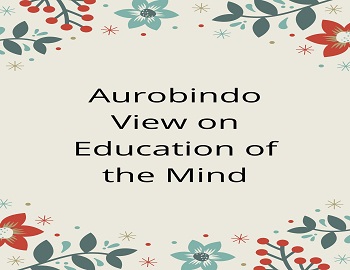
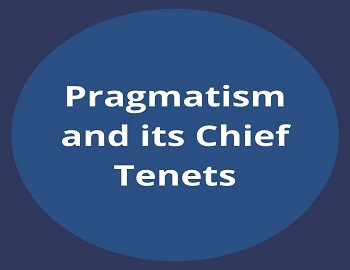
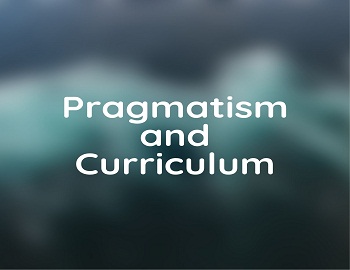
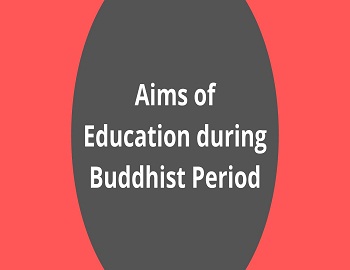

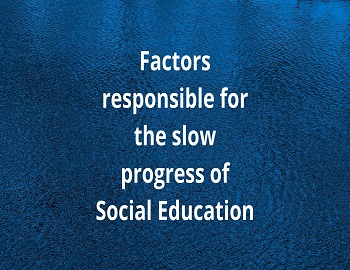
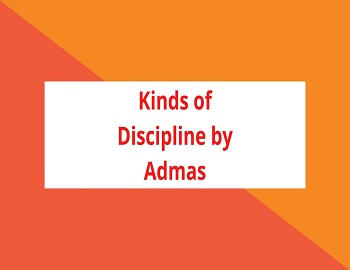
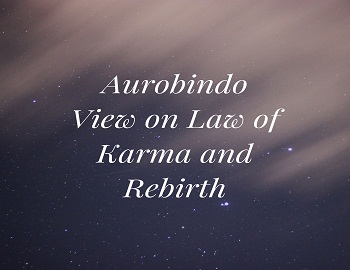
Comments (No)